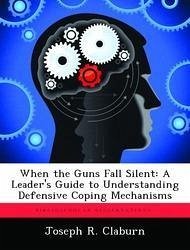Post-Traumatic Stress Disorder (PTSD) is becoming an important topic for military leaders as the two wars in Afghanistan and Iraq continue. The diagnosis of PTSD in Soldiers returning from the battlefields is increasing at an alarming rate. Despite the escalating diagnosis of PTSD, undiagnosed individuals continue to cope with stress in their own and unique way, identified as Defensive Coping Mechanisms. This reaction to stress can present itself in the form of any number of behavioral and psychological reactions. It is likely that these behavioral changes could potentially go unrecognized by leaders depending on the severity of the individual's reactions. In some cases, these reactions are maintained for ten to fifteen years as pre-cursors to being diagnosed with PTSD. With the current conflicts in Afghanistan and Iraq reaching that ten year point, it is possible that the Veteran's Administration (VA) Hospitals will be flooded with discharged service members who are now unable to cope and therefore seek professional treatment. One way that the Army can effectively control the increase in individuals being diagnosed with PTSD, or limit misunderstanding by leaders due to an unreported defensive coping mechanism, is through leader education of defensive coping mechanisms, proper screening by medical personnel well after the prescribed 90-180 days following a deployment, and increased resiliency training in individual Soldiers. Without these measures being implemented, it is possible for Soldiers to use unhealthy defensive coping mechanisms to stress, which may result in Soldiers flooding the medical system years a decade or more later due to their inability to cope any longer. This would clearly result in a drastic increase in PTSD diagnosis by military members both on active duty and in the VA Hospitals across America.








